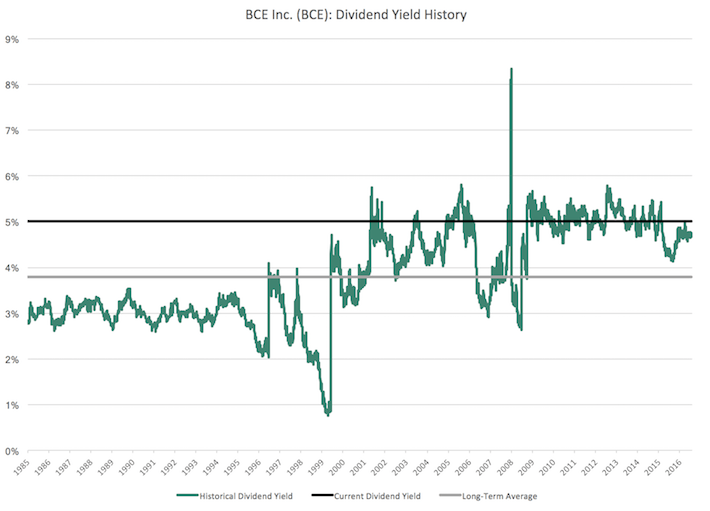The Growing Trend Of Betting On Natural Disasters: A Case Study Of The Los Angeles Wildfires

Table of Contents
The Mechanics of Disaster Betting Markets
Disaster betting markets, while not widely legalized or readily accessible to the public, operate on principles similar to other prediction markets. They involve individuals placing bets on the probability, scale, and impact of a specific natural disaster. The mechanics generally include:
- Odds Setting: Sophisticated algorithms, often incorporating weather models, historical data, and expert opinions, calculate the odds for various outcomes. For instance, a bet on the likelihood of a wildfire exceeding a certain acreage in a given region would have odds reflecting the calculated probability of that event occurring.
- Payout Structures: Payouts depend on the accuracy of predictions. A correct prediction results in a return based on the odds assigned to that specific outcome. The higher the risk (lower probability of occurrence), the higher the potential payout.
- Types of Bets: Various bet types could include:
- Binary Bets: A simple yes/no prediction (e.g., will a major wildfire occur in Los Angeles County this year?).
- Range-Based Bets: Predicting the extent of damage within a specified range (e.g., the wildfire will burn between 10,000 and 20,000 acres).
- Magnitude-Based Bets: Predicting the intensity of the disaster (e.g., the wildfire will reach a severity level of 4 on the National Fire Danger Rating System).
- Data Sources: Accurate prediction relies heavily on robust data. Sources could include:
- Advanced weather models incorporating wind patterns (like Santa Ana winds for Los Angeles), precipitation levels, and humidity.
- Historical wildfire data, mapping previous fire outbreaks and their spread.
- Satellite imagery and remote sensing technologies for real-time monitoring of vegetation and fuel conditions.
- Expert opinions from meteorologists, wildfire specialists, and other relevant professionals.
- Regulation and Legality: The legal status of disaster betting is complex and varies significantly across jurisdictions. Many countries have strict regulations or outright bans on betting on events that could be seen as exploiting human suffering.
The Los Angeles Wildfires as a Case Study
The Los Angeles region has a long history of devastating wildfires, with events like the 2007 Witch Fire, the 2009 Station Fire, and the 2018 Woolsey Fire causing significant damage and loss of life. These events highlight the region's vulnerability to wildfires due to several factors:
- Santa Ana Winds: These strong, dry winds create ideal conditions for rapid fire spread.
- Chaparral Vegetation: The dense, dry vegetation prevalent in the area acts as abundant fuel.
- Drought Conditions: Prolonged periods of drought increase the risk of wildfires.
In a hypothetical disaster betting market, these wildfires could have been potential targets. Bets could have been placed on:
- The total acreage burned in a specific fire.
- The number of structures destroyed.
- The number of days the fire would burn.
Predicting these outcomes would have required careful consideration of factors like:
- The timing and intensity of Santa Ana winds.
- The presence of dry vegetation and the fuel load in the affected areas.
- The effectiveness of firefighting efforts.
However, the ethical implications of profiting from such destructive events are profound, and this underscores the inherent complexities of disaster betting.
Ethical and Societal Implications of Disaster Betting
The ethical concerns surrounding betting on natural disasters are significant. The idea of profiting from human suffering and widespread devastation raises serious moral questions.
- Exploitation and Manipulation: There's a risk of market manipulation, where individuals with access to privileged information (e.g., leaked weather reports) could gain an unfair advantage.
- Psychological Impact: For victims of natural disasters, witnessing others profiting from their suffering could be profoundly distressing and add insult to injury.
- Undermining Disaster Relief: The focus on financial gain could potentially distract from crucial disaster relief efforts and resources.
- Exacerbating Preparedness Issues: The very existence of such markets could inadvertently discourage preventative measures or responsible land management practices.
Arguments against disaster betting frequently cite:
- A complete lack of empathy and disregard for human suffering.
- The potential for the spread of misinformation and inaccurate predictions.
- The undermining of already strained disaster relief efforts.
Conversely, proponents might argue (though this remains highly controversial) that regulated markets could potentially incentivize better disaster preparedness through improved prediction models and data analysis. However, the potential harms significantly outweigh any perceived benefits. The comparison to other ethically questionable betting practices, such as political betting, only further highlights the problematic nature of this emerging trend.
The Future of Disaster Betting: Risks and Opportunities
The future of disaster betting is uncertain. While technological advancements like AI and improved predictive models could lead to more accurate predictions, the inherent risks remain substantial. The potential for misuse and exploitation necessitates stringent regulation and oversight. However, there's a faint, albeit controversial, possibility that disaster betting, if carefully managed and regulated, could contribute to disaster preparedness. This might involve:
- Investment in improved predictive technologies: Betting revenue could potentially fund research and development of more sophisticated weather models and early warning systems.
- Philanthropic Initiatives: A portion of the betting revenue could be directed towards disaster relief and recovery efforts.
However, these potential benefits pale in comparison to the significant ethical and societal risks associated with this developing market. Technological advancements that could improve the accuracy of predictions include:
- Advanced satellite imagery and remote sensing.
- AI-powered algorithms analyzing vast datasets to predict wildfire spread and intensity.
- More precise weather forecasting models.
Potential regulatory frameworks could range from outright bans to strict licensing and oversight, with careful consideration given to responsible gambling measures and consumer protection.
Conclusion: Understanding the Complexities of Betting on Natural Disasters
This article has explored the emerging trend of betting on natural disasters, using the Los Angeles wildfires as a compelling case study. While the potential for more accurate prediction models exists, the ethical and societal implications of profiting from human suffering are undeniable. The inherent risks, including market manipulation, psychological harm to victims, and the potential to undermine disaster relief efforts, significantly outweigh any perceived benefits. We must engage in a critical discussion about the ethical and societal implications of disaster betting before this controversial market gains any significant traction. We urge further research and open dialogue on this topic, promoting responsible approaches and ensuring ethical considerations remain at the forefront of any future development in this field. Before engaging in any form of natural disaster betting, carefully consider the ethical ramifications and potential consequences.

Featured Posts
-
 Tzortz Kloynei And Antam Santler Synergasia Stin Tainia Jay Kelly Toy Noa Mpompak
May 12, 2025
Tzortz Kloynei And Antam Santler Synergasia Stin Tainia Jay Kelly Toy Noa Mpompak
May 12, 2025 -
 Why Bce Inc Reduced Its Dividend A Detailed Analysis For Investors
May 12, 2025
Why Bce Inc Reduced Its Dividend A Detailed Analysis For Investors
May 12, 2025 -
 De Verrassende Connecties Van Prins Andrew Een Chinese Spion En Xi Jinping
May 12, 2025
De Verrassende Connecties Van Prins Andrew Een Chinese Spion En Xi Jinping
May 12, 2025 -
 The Unexpected Box Office Failure Of Guy Ritchies And Henry Cavills 2024 War Movie
May 12, 2025
The Unexpected Box Office Failure Of Guy Ritchies And Henry Cavills 2024 War Movie
May 12, 2025 -
 Policy Shift Faber Now Fully Supports Royal Honors For Asylum Volunteers
May 12, 2025
Policy Shift Faber Now Fully Supports Royal Honors For Asylum Volunteers
May 12, 2025
